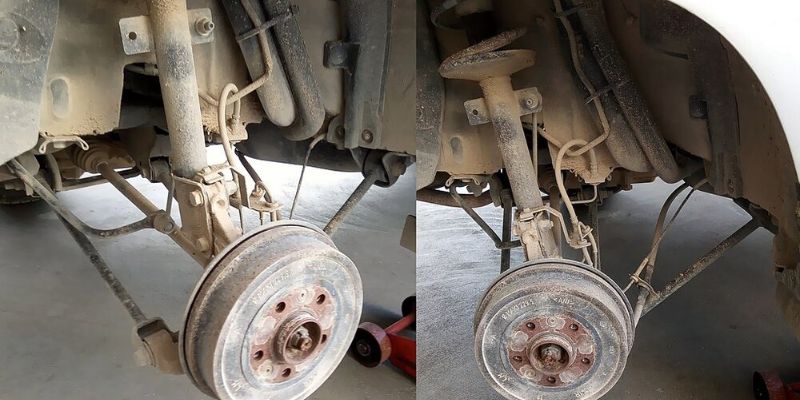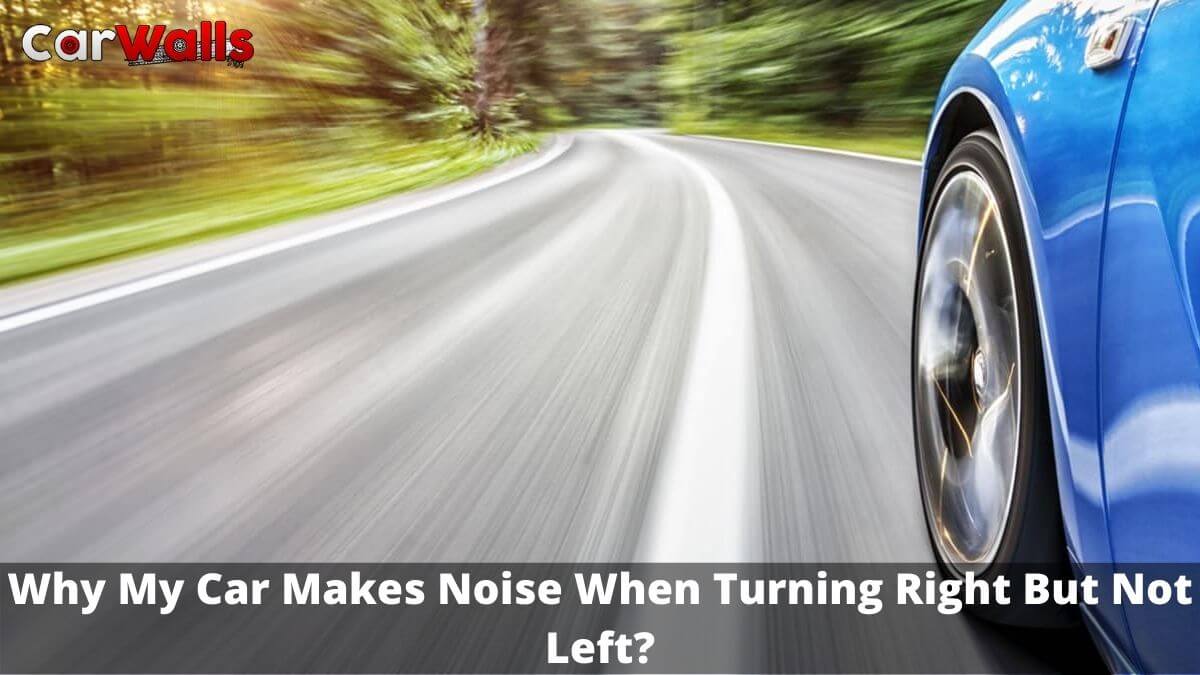Why Knocking Noise When Turning At Low Speed? When your car starts making strange noises at low speeds, it can be frustrating. In addition to being annoying, the noise may be a sign that something is wrong with your vehicle. When your car turns at a low speed, why does it make noise?
5 Reasons Why My Car Knocking Noise When Turning At Low Speed?

The potential causes of car noise are important to know as a driver since this will help you diagnose and address issues as soon as possible. In addition, who wants to drive around with a car that makes strange noises? These are some of the most common reasons why your car makes noise when turning at low speeds:
-
The Ball Joints Are Damaged
A ball joint connects the steering knuckle to the control arm. When these joints are damaged, the car can make creaky sounds when turning slowly.
Ball joints are damaged by excessive wear and tear, according to a 2017 study. The joint can also be damaged by accidents, dirt, ice, and snow buildup, as well as improper installation.
2. The CV Joints Are Worn Out
An engine’s power is transferred to the wheels by CV joints, which stand for constant velocity. They connect the transmission to the wheels in the middle of the axle. Wearing them out can cause a car to make a clicking sound when turning at low speeds.
Driving on rough or unpaved roads, stopping and starting frequently (for example, in city traffic), excessive wear and tear, and incorrect installation are common causes of CV joint damage.
-
The Power Steering Fluid Is Dirty or Contaminated
Lubrication and smooth operation of the power steering system are maintained by power steering fluid. A dirty or contaminated fluid can cause the car to make a grinding or squeaking noise when turning at low speeds.
Incorrect fluid type and skimping on maintenance are typical causes of dirty or contaminated power steering fluid. A power steering fluid may also become contaminated by particles deposited by seals, bearings, and gaskets over time.
-
The Power Steering Belt Is Damaged
Power is transferred from the engine to the power steering pump through the power steering belt. A worn or damaged belt can cause a loud whining noise when the car is turned at low speeds.
Generally, belt damage results from age, wear and tear, and incorrect installation. Also, the belt may break due to excess stress, especially if it’s too tight.
-
The Power Steering Pump Is Worn Out
Power steering fluid is circulated throughout the system by the power steering pump. Wear and tear on this pump can result in a whining noise when the car is turned at low speeds.
Incorrect fluids, age, and lack of maintenance are common causes of power steering pump wear out. In addition, if the pump is not properly lubricated, it can overheat and eventually fail.
Is It Safe To Drive With A Knocking Sound?

Many worn suspension components, such as worn ball joints, are picked up during vehicle inspection. Take from that what you will. But to say it is safe to drive with a knocking sound from the suspension is a recipe for disaster without knowing the exact cause.
A worn suspension bush or ball joint will be okay if you need to make a few small journeys. But, a broken coil spring could catch in the pan and cause more problems, such as a tire blowout. So, driving with that type of problem is certainly not safe.
Frequently Asked Questions
Que 1: Why Is There A Clunking Noise When I Go Slow?
Ans: Clunking noise from under your car while braking at lower speeds doesn’t mean it’s the end. It does mean that there may be an issue with your car’s braking system –usually a worn-out part. More specifically, a clunking noise when braking can be due to worn or damaged discs, rotors, callipers, and backing plates.
Que 2: Is Suspension Knocking Bad?
A knocking sound when going over bumps can indicate a problem with the suspension struts. There might be a clanking sound of metal hitting metal when you go over bumps. This could show the rubber bushes that join parts of the suspension have failed.
Also Read: How To Read A Battery Charger: A Guide For Beginners
Conclusion
Noise when turning your car at low speeds can signify many different problems. By inspecting and repairing the damage, you can eliminate the noise and keep your car running smoothly.
If you’re not comfortable performing these repairs yourself, take your car to a mechanic. They will help diagnose the problem and make the necessary repairs.
Finally, ensure you observe strict maintenance schedules to avoid problems with your car in the future.




![5 Things What Causes Small Dents In Cars? [How To Fix It] 5 Things What Causes Small Dents In Cars? [How To Fix It]](https://carwalls.org/wp-content/uploads/2023/05/Untitled-design-8-5-218x150.jpg)


